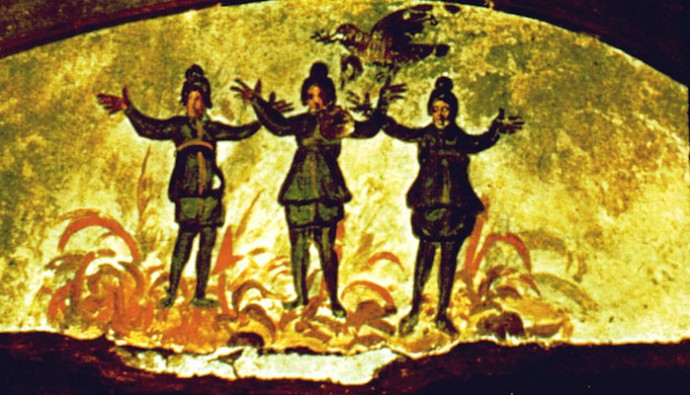What is faith?
Is it a feeling? Is it based in intellect? Is it a gift? Is it a choice? “Faith” is one of those words that we use frequently, but it’s often difficult to actually define. Fortunately, the Bible does that defining for us:
“Now faith is the reality of what is hoped for, the proof of what is not seen” (Hebrews 11:1). That’s the definition. But couched in that definition is the recognition that faith is only as good as the object of that faith. I read at one point Tim Keller describing a scenario like this:
“The faith that changes the life and connects to God is best conveyed by the word “trust.” Imagine you are on a high cliff and you lose your footing and begin to fall. Just beside you as you fall is a branch sticking out of the very edge of the cliff. It is your only hope and it is more than strong enough to support your weight. How can it save you? If your mind is filled with intellectual certainty that the branch can support you, but you don’t actually reach out and grab it, you are lost. If your mind is instead filled with doubts and uncertainty that the branch can hold you, but you reach out and grab it anyway, you will be saved.
Why?
It is not the strength of your faith but the object of your faith that actually saves you. Strong faith in a weak branch is fatally inferior to weak faith in a strong branch.”
This quote clarifies the nature of faith. Faith does not guarantee a certain outcome in a given situation, because ultimately faith is dependent on the object of that faith. For the Christian, faith is about trusting God and His character to do what is good and right and true, even if that outcome does not appear to be good and right and true to us.
There is a phrase, from a story in the Bible, that further clarifies the nature of faith. This single phrase moves us past thinking of faith as triumphalism where if we believe strongly enough then we will get the outcome we desire.
Here’s the phrase:
“Even if He does not…”
Remember the story? Let me take you back to the scene where thousands upon thousands of loyal subjects bowed before a golden statue, either because they revered their leader, or they feared the proclamation he had made – that anyone who did not bow before his idol would be thrown into a furnace.
Three figures stood apart, starkly visible in the midst of the crowd of those who has prostrated themselves. Shadrach, Meshach, and Abednego did not bow, and they were called on the carpet for it. After being given one more chance to change their minds, and knowing the consequences of their stand (literally), they responded with that statement:
“Nebuchadnezzar, we don’t need to give you an answer to this question. If the God we serve exists, then He can rescue us from the furnace of blazing fire, and He can rescue us from the power of you, the king. But even if He does not rescue us, we want you as king to know that we will not serve your gods or worship the gold statue you set up” (Daniel 3:16-18).
“Even if He does not,” they said. And with those 5 words, the three faithful Hebrews pointed out that ultimately, our faith is not dependent on our circumstances; it’s dependent on the character of God. That we trust not so that we can achieve a certain desirable outcome, but because we believe God is trustworthy and will do the right thing on our, and His, behalf.
This phrase reminds me of another moment in time, with another faithful Hebrew, who also knew that faith was grounded in God’s character. This Faithful One knelt before His Father, knowing that He, too, would soon face His own circumstance of pain. And kneeling there in the garden, He prayed for deliverance – that the same God who allowed not one hair on the heads of Shadrach, Meshach, and Abednego to be singed would once again intervene. But at the same time, He expressed His unwavering faith in the God who does what is right, all the time, knowing that even if He does not, the outcome would still be the best. So Jesus, too, prayed:
“Father, if You are willing, take this cup away from Me—nevertheless, not My will, but Yours, be done” (Luke 22:42).
And so it was that God, once again, did what was right. Jesus went to the cross. In so doing, He showed us that faith is founded in God’s character, not our preference, and that He always does what is good and right and true, even “if He does not…”
Subscribe to MichaelKelley.co
Never miss a new post. Subscribe to receive these posts in your inbox and to receive information about new discipleship resources.






My question leads me to this page. You said it’s the object of the faith that saves you, not the faith itself. I like Tim Keller’s cliff and the branch illustration. However, what if you have no faith at all? What if you don’t even see there’s branch for you to hang upon? What if you don’t even believe in God or refuse to believe his existence? Can God help those who don’t believe Him? Sure He can but He respects our free will.
So is it faith or God that saves us?
I’d go to what the Bible says that it is by grace through faith in Christ.